2017
The winner is listed first, in CAPITAL letters.
Filmsite's Greatest Films
of 2017
|
Best Picture
|
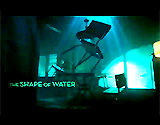
THE SHAPE OF WATER (2017)
|
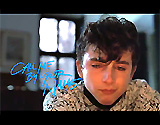
Call Me By Your Name (2017)
|
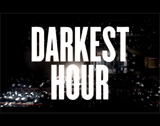
Darkest Hour (2017)
|

Dunkirk (2017)
|

Get Out (2017)
|

Lady Bird (2017)
|

Phantom Thread (2017)
|
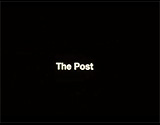
The Post (2017)
|
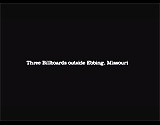
Three Billboards outside Ebbing, Missouri (2017)
|
|
|
Best Animated Feature Film
|

COCO (2017)
|
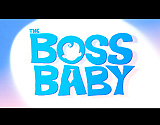
Boss Baby (2017)
|

The Breadwinner (2017)
|

Ferdinand (2017)
|

Loving Vincent (2017)
|
Actor:
GARY OLDMAN in "Darkest Hour," Timothee
Chalamet in "Call Me By Your Name," Daniel Day-Lewis in "Phantom
Thread," Daniel Kaluuya in "Get Out," Denzel Washington in "Roman
J. Israel, Esq."
Actress:
FRANCES McDORMAND in
"Three Billboards outside Ebbing, Missouri," Sally Hawkins in "The
Shape of Water," Margot Robbie in "I,
Tonya," Saoirse Ronan in "Lady Bird,"
Meryl Streep in "The Post"
Supporting Actor:
SAM ROCKWELL in "Three Billboards outside Ebbing, Missouri," Willem
Dafoe in "The Florida Project," Woody Harrelson in "Three Billboards
outside Ebbing, Missouri," Richard Jenkins in "The Shape of Water," Christopher
Plummer in "All the Money in the World"
Supporting Actress:
ALLISON JANEY in "I, Tonya," Mary J. Blige in "Mudbound," Lesley
Manville in "Phantom Thread," Laurie
Metcalf in "Lady
Bird," Octavia
Spencer in "The Shape of Water"
Director:
GUILLERMO DEL TORO for "The Shape of Water," Paul Thomas
Anderson for "Phantom Thread," Greta Gerwig
for "Lady
Bird," Christopher
Nolan for "Dunkirk," Jordan Peele for "Get Out"
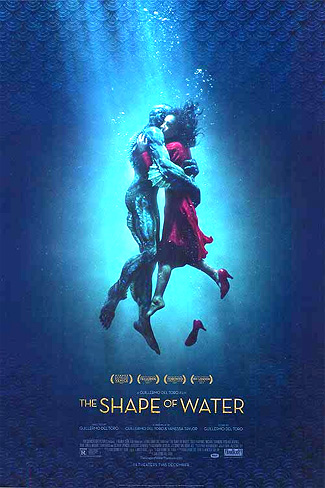 The
TV telecast of the Oscar presentations appeared
to be an all-time low rating (at 18.9), 16% lower than last year’s
22.4 rating (marking a 9 year-low point), and well below the previous
low ratings point - the 2008 telecast (at 21.9). In terms of viewership
numbers, there were 26.5 million viewers (in the previous year,
there were 32.9 million). The
TV telecast of the Oscar presentations appeared
to be an all-time low rating (at 18.9), 16% lower than last year’s
22.4 rating (marking a 9 year-low point), and well below the previous
low ratings point - the 2008 telecast (at 21.9). In terms of viewership
numbers, there were 26.5 million viewers (in the previous year,
there were 32.9 million).
There was rampant speculation about the reasons for
low viewership - of which these were the most common allegations:
- the decline of
audiences for many large TV events (i.e., the Winter Olympics,
the Super Bowl), award shows (the Grammys, Golden Globes and
Emmys) and TV in general
- the low numbers
of people who had actually seen the Best Picture-nominated movies
with only modest box-office receipts
- the
lack of blockbuster crowd-pleasing films among the top nominees:
(Wonder
Woman (2017), Beauty and the Beast (2017), Jumanji:
Welcome to the Jungle (2017), It (2017), Spider-Man:
Homecoming (2017), Guardians
of the Galaxy, Vol. 2 (2017), and Star
Wars: Episode VIII - The Last Jedi (2017))
- the presumed politicization of the event, peppered
with biases and agendas of hypocritical, liberal-leaning Hollywood
elites preaching feminism, diversity, and inclusion
- the nearly
four-hour, fatiguing run-time (ending at midnight on the East Coast)
- the exhaustion felt by having to hear again
about the Harvey Weinstein scandal (known for years by many)
that led to two movements, #MeToo and Time’s Up, and the
ensuing skeptical belief that enlightened concern to remake
the industry was only a passing fad that couldn't be sustained
among preening Tinseltown stars
- the sense that the show would be extensively micro-managed
in order to prevent a repeat of last year's embarrassing screw-up
with the wrong envelopes and announcement of the wrong Best
Picture
- the realization that most award categories were
highly predictable, and had pre-ordained or expected favorites
The
Oscar awards were fairly evenly spread out amongst the 9 films
nominated for Best Picture. Seven of the nine Best Picture nominees
received at least one award, insuring that no one film would sweep
this year's Oscars. Only six films won multiple Oscar trophies:
The Shape of Water (4), Dunkirk (3), Darkest Hour (2), Three
Billboards outside Ebbing, Missouri (2), Coco (2) (the
first Animated Feature Film winner with a Latino protagonist),
and Blade
Runner 2049 (2).
The big winner was Mexican film-maker
Guillermo del
Toro’s
fantasy romance The
Shape of Water (with 13 nominations and 4 wins - Best Picture,
Best Director, Best Original Score, and Best Production Design).
[Note: It was the tenth film in Oscar history to earn 13 nominations.
The current record of 14 nominations was held by only three films, All
About Eve (1950), Titanic (1997) and La
La Land (2016).]
The whimsical Best Picture-winning tale told about
a fanciful romance set in the early 1960s between a mute, forlorn
cleaning woman (Sally Hawkins) and a misunderstood, imprisoned
amphibious, mutant man-monster (Doug Jones) in a secret Cold War
lab outside Baltimore. [Note: The design
of the creature caught in the Amazon paid homage to The Creature
from the Black Lagoon (1954).] It was the highest-grossing
(domestic) Best Picture winner in five years, at $57.4 million
at the time of the award. It was only
the second movie with a credited female screenwriter (Vanessa
Taylor with co-writer Guillermo del Toro) to win Best Picture since
World War II. [Note: The first film was The
Lord of the Rings: The Return of the King (2003) -
co-written by two female screenwriters: Fran Walsh and Philippa
Boyens.] The R-rated feature (with sexual content, graphic nudity,
violence and language) was the sixth consecutive Best
Picture winner with this rating, beginning with Argo (2012).
The second most decorated film of the year was Christopher
Nolan’s war epic Dunkirk (with 8 nominations and 3 wins,
all in technical categories - Best Sound Editing, Best Sound Mixing,
and Best Film Editing) about the fierce battle
of the Allies (led by the British) against the Nazi enemy during WWII.
WB's Dunkirk was the highest-grossing (domestic) film of the entire
group of Best Picture nominees at the time of the awards, at $188 million.
Another WWII biopic also fared well,
director Joe Wright's and Focus Film's UK historical character-drama Darkest
Hour (with
6 nominations and 2 wins, including Best Actor, and Best Makeup
and Hairstyling). It told about the newly-appointed Prime Minister
of Great Britain Winston Churchill (Gary Oldman) during the early
war years who faced tremendous odds against the Nazis.
The fourth film to do exceedingly well was writer/director
Martin McDonagh's black comedy-drama Three
Billboards outside Ebbing, Missouri (with 7 nominations and 2 wins,
including two major performance awards: Best Actress and Best Supporting
Actor). The Fox Searchlight film told about an angry, grieving vengeful
mother's (Frances McDormand) challenge to local racist, redneck authorities
regarding the unsolved rape-murder of her daughter, and her ongoing
conflict with
Officer Jason Dixon (Sam Rockwell).
A number of other films nominated for Best Picture
also picked up various awards:
- writer/director Paul Thomas Anderson's historical
drama Phantom Thread (with six nominations and only one
Oscar, Best Costume Design), about renowned, obsessive dressmaker
Reynolds Woodcock (Best Actor-nominated Daniel Day-Lewis) in
1950s London whose life was disrupted by a romance with his determined
and willful waitress-muse-lover Alma (Vicky Krieps).
- writer/director Jordan Peele's sleeper hit and
horror film Get Out (with 4 nominations and one win, Peele's
Best Original Screenplay, the first for an African-American nominee)
about a mysterious, secluded Lake Pontaco home, where caucasian
Rose Armitage (Allison Williams) took her African-American boyfriend
photographer (Best Actor-nominated Daniel Kaluuya) for a weekend
visit. Universal's film was the second highest-grossing (domestic)
film of the 9 Best Picture nominees at the time of the awards, with
$176 million.
- director Luca Guadagnino's gay coming-of-age love
story Call
Me By Your Name (with 4 nominations and 1 win, Best Adapted
Screenplay for James Ivory) set in
Northern Italy in the early 1980s. It told about a bonding
relationship between a 24 year-old American graduate student
and visiting intern (Armie Hammer) and a precocious 17 year-old
family member Elio (Best Actor-nominated Timothée Chalamet).
[Note: 89 year-old James Ivory, a four-time Oscar nominee and well-known
for his Merchant Ivory Productions and acclaimed British period
films, finally won the Oscar for Best Adapted Screenplay, marking
him as the oldest Oscar winner to date. He had previously been nominated
three times as Best Director for A Room with a View (1985), Howards
End (1992), and The Remains of the Day (1993).]
Two of the Best Picture nominees came away empty
handed:
- writer/director Greta Gerwig's Lady Bird (with
5 nominations and no wins), a portrait
of the early 2000s in Sacramento, CA during the coming-of-age of
a willful Catholic high school teenager (Best Actress-nominated
Saoirse Ronan) who had a volatile relationship with her mother
(Best Supporting Actress-nominated Laurie Metcalf).
- director Steven Spielberg's (and Fox's) biographical
drama
The Post (with 2 nominations and no wins), about
the era of the Pentagon Papers government scandal and cover-up,
and the involvement of the US' first female publisher and heiress
Kay Graham (Best Actress-nominated Meryl Streep) at the Washington
Post newspaper
as it battled a federal restraining order.
Four other films did well
in terms of overall nominations (and some Oscar wins), although
they were not nominated for Best
Picture:
- director Denis Villeneuve’s unconventional
sci-fi Blade Runner 2049 (with 5 nominations and 2 wins, Best
Cinematography and Best Visual Effects); Roger
Deakins took home his first Oscar for Cinematography after
fourteen nominations (in some of the most classic films ever
made from 1994 to 2017, a period of 23 years). He had been nominated
13 times for an Oscar for Best Cinematography without a win — an
Academy record. [Note: Competing in the same category, Rachel Morrison
was the first woman ever nominated for the Cinematography Oscar,
for Mudbound (2017).]
- director Craig Gillespie's dark comedic Tonya
Harding biopic I, Tonya (with 3 nominations and 1 win,
Best Supporting Actress); TV star Allison Janey won for her supporting
work in the film.
- writer/director Dee Rees' (and Netflix's) WWII
period drama set in rural Mississippi during the era of Jim Crow
laws, Mudbound (with 4 nominations and 0 wins); Rachel Morrison's
nomination for Best Cinematography was a milestone first for a female.
- the top-grossing film of the year, co-writer/director
Rian Johnson's sci-fi blockbuster Star
Wars: The Last Jedi (with 4 nominations and 0 wins).
In the category of Best
Director, the winner was 53 year-old Mexican
film director Guillermo del Toro for the whimsical fantasy film, The
Shape of Water. The film brought co-writer/director
del Toro his third and fourth Academy nominations, for
Best Director (his first nomination
and win in the category) and Best Original Screenplay. He had
previously been nominated twice for another fantasy film, Pan's Labyrinth
(2006),
for Best Original Screenplay and Best Foreign Language film.
[Note: From 2013 to 2017, Mexican film-makers have won Oscars
for Best Director in four of the five years, for unconventional films.
Del Toro became the third Mexican-born filmmaker to win the award.
And the consecutive string of non-Americans (6) winning Best Director
stretched from 2010 to 2015.]
The other Best Director nominees in the category
were:
- 47 year-old Paul Thomas Anderson for his 8th feature
film, Phantom
Thread about the London fashion industry in the 1950s;
he also received a nomination for Best Picture for the film
[Note:
It was only his second Best Director nomination, although
it was his 8th Oscar nomination overall; he had previously been
nominated Best Director for the Best Picture-nominated There
Will Be Blood (2007),
and he had four nominations for his screenplays for Boogie
Nights (1997), Magnolia (1999), There Will Be Blood
(2007),
and Inherent Vice (2014).]
- 34 year-old actress/writer/director Greta Gerwig
for the comedy-drama, Lady
Bird, her solo directorial debut film
[Note: Gerwig was also nominated for Best Original Screenplay,
marking her first two Academy nominations. Gerwig's nomination
for Best Director made her the fifth woman to be nominated
for Best Director. She was the third American woman nominated
as Best Director, and the first woman to be nominated
as Best Director for her solo directorial debut.]
- 47 year-old British film-maker Christopher Nolan
for the WWII war epic Dunkirk
[Note: This was Nolan's first nomination as Best Director.
He also had two previous nominations for his screenplays: Best
Original Screenplay for Memento (2000) and Inception
(2010).]
- 38 year-old African-American writer/director Jordan
Peele for Get Out, his solo directorial debut film
[Note: Peele's nomination for Best Director made him the fifth black
director ever nominated for the Oscar. He received an Oscar for
his nomination for Best Original Screenplay - and became the first African-American
to earn such an Oscar. He also received honors as the producer of
the Best Picture nominee. He therefore became the first black filmmaker
(and the third filmmaker of all time, after Warren Beatty and James
L. Brooks) ever nominated for the trifecta of directing, writing,
and producing in the same year for his debut feature film.]
All four of the recipients of Oscar gold for individual performances
were widely predicted to win.
In the category of Best
Actor in a Leading Role, the winner was 59 year-old English
actor Gary Oldman, with his
second nomination (and first win) in the Best Actor category,
for his role as British Prime Minister Winston Churchill during
the early years of WWII, in the British war drama Darkest
Hour. [Note: Oldman was previously nominated for his role
in the Cold War espionage film Tinker Tailor Soldier Spy (2011).]
The
other four Best Actor nominees in the category were:
- 63 year-old Denzel Washington, with his eighth performance
nomination of his career (he became the most nominated
black actor of all-time), as the title character - a lawyer in
writer/director Dan Gilroy's legal drama Roman
J. Israel, Esq.; the nearly-forgotten movie did very poorly
at the box-office and was poorly received by critics
[Note: Washington had two previous Oscar wins,
Best Supporting Actor for Glory (1989), and Best Actor for Training
Day (2001). He has also been nominated as Supporting Actor for
Cry Freedom (1987), and as Best Actor for Malcolm X (1992), The
Hurricane (1999),
Flight (2012), and Fences (2016). He has a ninth nomination
as producer for Best Picture-nominated Fences (2016).]
- 60 year-old English actor Daniel Day-Lewis, with
his sixth nomination in the Best Actor category, for his
role as fashion designer Reynolds Woodcock in 1950s London, in Phantom
Thread - allegedly his final film role before retiring
[Note: Day-Lewis held the record as the only actor to have received three Best
Actor Oscars, for My Left Foot: The Story of Christy Brown (1989), There
Will Be Blood (2007), and Lincoln (2012). He was also
nominated for In
the Name of the Father (1993) and Gangs of New York
(2002).]
- 22 year-old American actor Timothee Chalamet,
with his first nomination
as sensitive 17 year-old Elio, the lead role in director Luca
Guadagnino's homosexual romance Call
Me By Your Name; in the film set during the early 1980s,
he fell in love with Oliver (Armie Hammer), a college university
graduate student and intern who had come to stay with Elio's
family.
[Note: At age 22, Chalamet became the third-youngest Best Actor
nominee in Oscar history.]
- 28 year-old British born black Daniel Kaluuya,
with his first nomination as photographer Chris,
in the horror film Get Out
In the category of Best
Actress in a Leading Role, the winner was 60 year-old Frances
McDormand, with her fifth Oscar nomination and second
Best Actress win, as angry and grieving mother
Mildred Hayes, who rented three billboards in her hometown to
publicize the botched case following the rape and murder of her
teenage daughter Angela seven months earlier, in Three Billboards
outside Ebbing, Missouri. [Note: McDormand was previously
nominated thrice as
Best Supporting Actress, for Mississippi Burning (1988), Almost
Famous (2000), and North Country (2005). Her other
previous Oscar win was for Best Actress for Fargo
(1996).]
The other
four Best Actress nominees in the category were:
- 68 year-old Meryl Streep, with her 21st Academy
Award nomination (a significant record), as Washington Post publisher-heiress
Katharine Graham during the Vietnam War-era at the time of the
Pentagon Papers scandal, in Steven Spielberg's political thriller The
Post
[Note: Streep's nominations ranged all the way
from The Deer Hunter (1978) to
the present day. She had won three times: Best Supporting
Actress for Kramer vs. Kramer
(1979), and Best Actress for Sophie's Choice (1982) and The
Iron Lady (2011). At the time of these Oscar presentations, she
had seventeen nominations
for Best Actress and four for Best Supporting Actress.]
- 41 year-old British-born actress Sally Hawkins,
with her second nomination, in the role of mute Baltimore
janitor Elisa Esposito working in a secret government facility
in the 1960s who bonded with an amphibious humanoid-creature,
in the fantasy drama The
Shape of Water
[Note: Hawkins was previously nominated as Best Supporting Actress
for Blue Jasmine (2013).]
- 27 year-old Australian actress Margot Robbie,
with her first Oscar nomination, in director Craig Gillepsie's
biographical drama about controversial figure skater Tonya Harding,
who was managed by her abusive mother LaVona Golden (Oscar-winning
Allison Janney), in I,
Tonya (with three nominations, including Best Supporting Actress
and Best Editing)
- 23 year-old Saoirse Ronan, with her third nomination
and second Best Actress nomination, for her role as Christine "Lady
Bird" McPherson, a Catholic high-school senior
in the early 2000s in the Sacramento area, who fought constantly
with her overbearing mother Marion McPherson (Oscar-nominated
Laurie Metcalf), in the coming-of-age comedy-drama Lady
Bird
[Note: Ronan was previously nominated as Best Supporting Actress
for Atonement (2007), and Best Actress for Brooklyn
(2015).]
In the category of Best
Supporting Actor,
the winner was 49 year-old Sam Rockwell,
with his first Oscar nomination, for his performance as
racist Officer Jason Dixon involved in an ongoing controversy with
angry town mother (McDormand) over a rape-murder case, in Three
Billboards outside Ebbing, Missouri. [Note: Having two Best
Supporting Actor nominees in the same film (Rockwell and Harrelson)
hasn't occurred very often. The last time was when Harvey Keitel
and Ben Kingsley were both nominated (and lost) in this category
in Barry Levinson's Bugsy
(1991).]
The other four Best Supporting Actor nominees
in the category were:
- 88 year-old Christopher Plummer, with his third Best
Supporting Actor Oscar nomination, for his performance as oil
tycoon J. Paul Getty who refused extortion demands from Mafia
kidnappers of his grand-son, in director Ridley Scott's crime
thriller All the Money in the World (the film's sole nomination)
- Plummer had replaced the original male star, Kevin Spacey,
and reshot all of the actor's scenes after Spacey became involved
in sexual assault allegations
[Note: With this nomination, Plummer became the oldest person
ever nominated for an acting Academy Award at the age of 88,
a record previously held by
the 87-year-old Gloria Stuart for Titanic (1997). At the age of 82,
Plummer previously won the Academy Award for Best Supporting Actor for Beginners (2010), becoming
the oldest person to ever win an Academy Award for acting. He
was also previously nominated for The Last Station (2009).]
- 70 year-old Richard Jenkins, with his second Oscar
nomination, for his role as struggling homosexual advertisement
illustrator Giles, the friend of mute next-door neighbor Elisa
Esposito (Hawkins), in The Shape of Water
[Note: Jenkins was previously nominated as Best
Actor for The Visitor (2007/8).]
- 62 year-old Willem Dafoe, with his third Best
Supporting Actor nomination, as Bobby Hicks - the manager of
the rundown Magic Castle Motel in Kissimmee Florida near
Walt Disney World, and the father of Jack Hicks, in co-writer/director
Sean Baker's drama The
Florida Project (the film's sole Oscar nomination)
[Note: Dafoe's previous two similar nominations
were for Platoon (1986) and Shadow of the Vampire
(2000).]
- 56 year-old Woody
Harrelson, with his third Oscar nomination and second Best
Supporting Actor nomination, as suicidal Sheriff Bill Willoughby
who suffered from terminal pancreatic cancer and faced the wrath
of frustrated grieving mother Mildred (McDormand) of a rape-murder
victim, in Three
Billboards outside Ebbing, Missouri
[Note: Harrelson's previous two nominations were Best Actor
for The People vs. Larry Flynt (1996), and Best Supporting Actor
for The Messenger (2009).]
In the category of Best
Supporting Actress,
including mostly-first time nominees (with three strong mother
roles among the five female characters), the winner was 58 year-old
Allison Janney, with her first Oscar nomination, for her
role as controversial iceskater Tonya Harding's abusive, 'white-trash'
mother LaVona Fay Golden, in the biographical drama, I, Tonya.
The other four Best Supporting Actress nominees
in the category were:
- 45 year-old Octavia Spencer, with her third Best
Supporting Actress Oscar nomination, for her role as Zelda D.
Fuller, the co-worker, next-door neighbor and interpreter for
mute Elisa Esposito (Sally Hawkins), in The Shape of Water
[Note: Spencer's two previous nominations were for Hidden
Figures (2016) and a win for The Help (2011). Spencer
was now tied with Viola Davis for the most Academy Award nominations
for a black female actor with three nominations each.]
- 47 year-old African-American singer/actress Mary
J. Blige, with her first acting nomination (and second
nomination), for her role as tenant farmer wife/mother Florence
Jackson, in writer/director Dee Rees' (and Netflix's) WWII period
drama set in rural Mississippi during the era of Jim Crow laws, Mudbound - with
four nominations, including Blige's two nominations, Best Cinematography
(Rachel Morrison, the first such nomination for a female), and
Best Adapted Screenplay (Dee Rees became the second black
woman to be nominated by the Academy for screenwriting)
[Note: Blige's Oscar nomination was supplemented
by a second co-nomination for the film's Best Original Song - Mighty
River.]
- 61 year-old British-born actress Lesley Manville,
with her first Oscar nomination, for her role as Cyril
Woodcock, the wry sister of famed fashion designer Reynolds Woodcock
(Day-Lewis) who managed his day-to-day affairs and business operations
in 1950s London, in Phantom
Thread
- 62 year-old Laurie
Metcalf, with her first Oscar nomination, as Marion
McPherson - the controlling mother of the title character, in Lady
Bird
Most Obvious Omissions and Snubs:
- Best Picture:
- Wonder Woman, a blockbuster of major proportions -
a female-directed (Patty Jenkins), female-led (Gal Gadot) superhero
film, was absent from every category of awards, including the technical
awards.
- Director Denis Villeneuve’s unconventional sci-fi Blade
Runner 2049, the sequel to Ridley Scott's Blade
Runner (1982) that has often been rated one of
the greatest sci-fi films ever,
was the only film with 5 or more nominations (all technical or craft
awards) without a
Best Picture nomination. It won two of its five nominations for its
technical craft: Best Visual Effects, and Best Cinematography (14-time
nominee Roger Deakins with his first Oscar win).
- Writer/director Sean Baker's low-budget arthouse film, The
Florida Project,
failed to receive recognition for its story of a poor young mother
and her 6-year-old daughter living in a seedy Orlando-area
motel. It failed to win its single nomination - Best Supporting
Actor for Willem Dafoe.
- I, Tonya - Craig Gillepsie's fictionalized biopic about
competitive ice skater Tonya Harding (Margot Robbie), received
three Academy nominations, but none of them recognized it as a
Best Picture contender. Allison Janey won the Best Supporting Actress
Oscar for her role as Tonya Harding's mother.
- Best Actor:
- James Franco did not receive a nomination for his comedic role
as eccentric Tommy Wiseau, in The Disaster Artist. Many
speculated it was because of multiple accusations of sexual misconduct
just before the close of nominations.
- Perennial favorite Tom Hanks and two-time Best Actor winner
(not nominated since 2000, 17 years earlier) was denied a nomination
for his role as irascible Washington
Post Editor
in Chief Ben Bradlee, in Spielberg's The Post. [Note:
Hanks has now been in a total of five Best Picture-nominated
films without being nominated himself - The Post (2017),
Bridge of Spies (2015), Captain
Phillips (2013), Extremely Loud and Incredibly Close (2011),
and Toy Story 3 (2010) (voice-over role).]
- Christian Bale was nowhere to be seen in the nominees, as legendary
Capt. Joseph J. Blocker in director Scott Cooper's western Hostiles.
- Best Actress:
- Jessica Chastain was neglected for her role as Molly Bloom -
a former ski champion and high-stakes poker gamer in Aaron
Sorkin’s
Molly’s
Game.
- Best Supporting Actor:
-
Armie Hammer was not in the list of nominees for
his role as visiting graduate school intern Oliver who bonded
with a teenage boy, in the gay film Call Me By Your Name.
- Best Supporting Actress:
- Holly Hunter was snubbed for her role as protective mother Beth
in The
Big Sick -
in
fact, the independent film was denied in every category except
one nomination for Best Original Screenplay.
- Black actress Tiffany Haddish was left out of the Supporting
Actress category for her role as Dina in Malcolm D. Lee's popular
hit comedy Girls
Trip.
- Best Director:
- British writer/director Martin
McDonagh was not nominated as the director of the favored,
Best Picture-nominated Three
Billboards outside Ebbing, Missouri,
although he did receive a Best Original Screenplay nominaton.
- Dee Rees' Mudbound was
snubbed in the categories of Best Picture and Best Director, and
was ultimately shut-out.
- Steven Spielberg's The Post had only two nominations,
Best Actress for Meryl Streep, and Best Picture, and lost both
of them.
- Best Animated Feature Film:
The most obvious snub
was the absence of The
Lego Batman Movie.
|
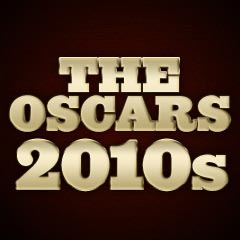
![]()